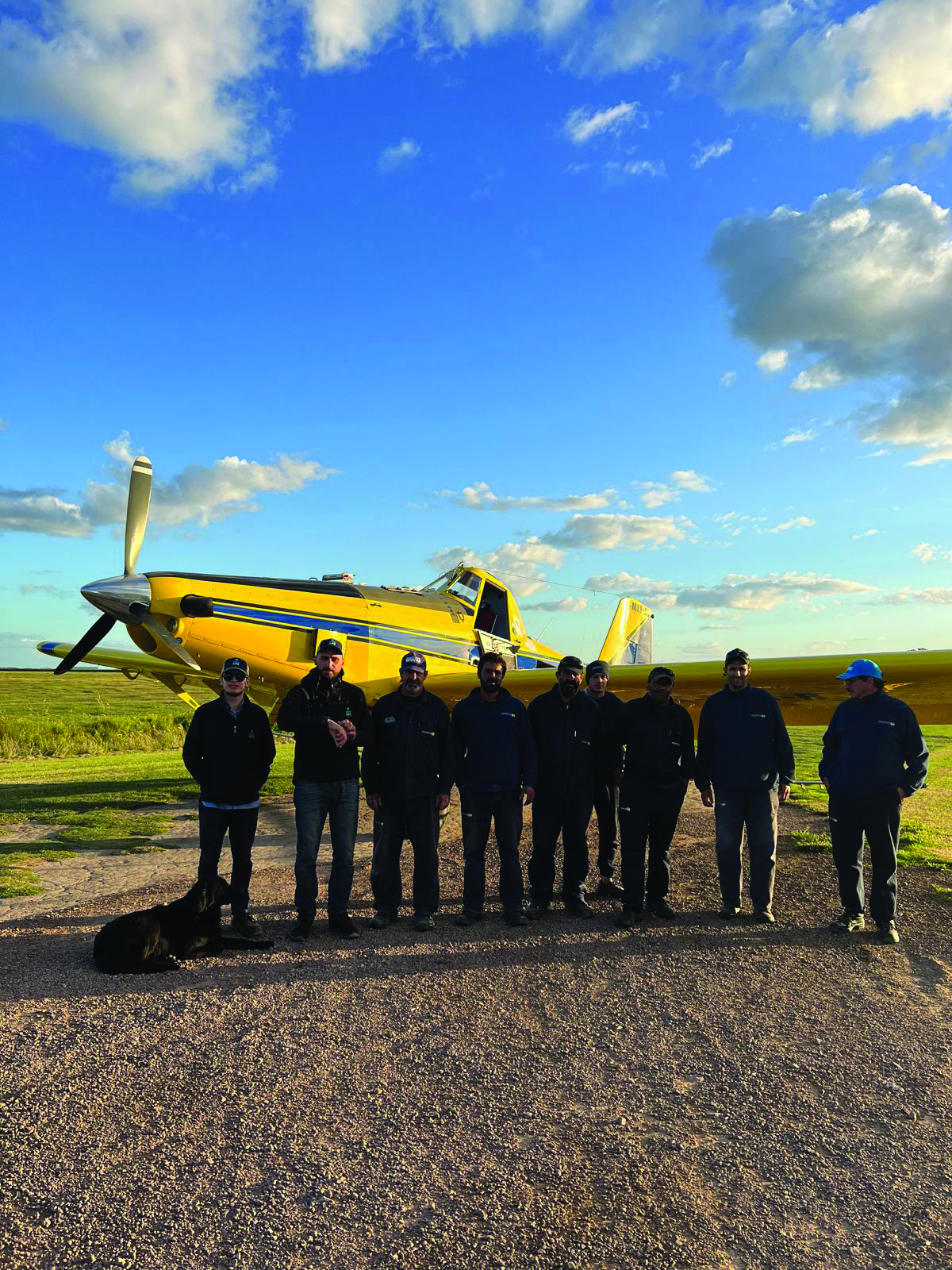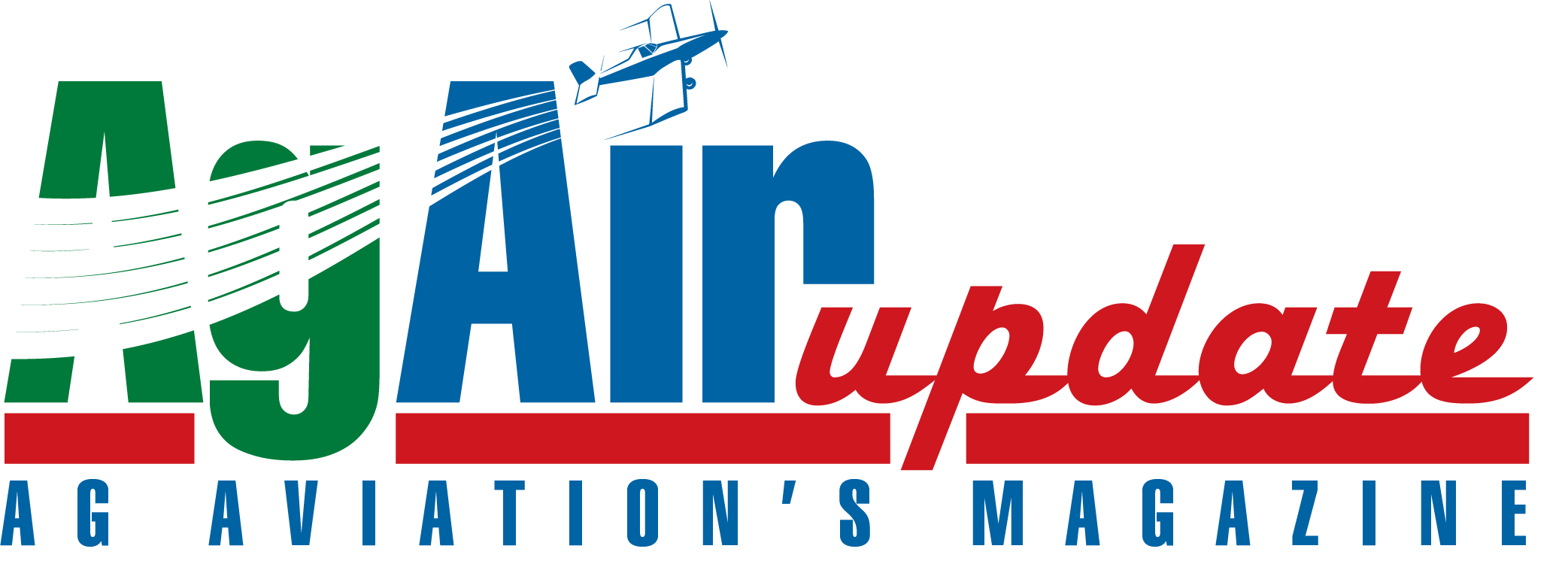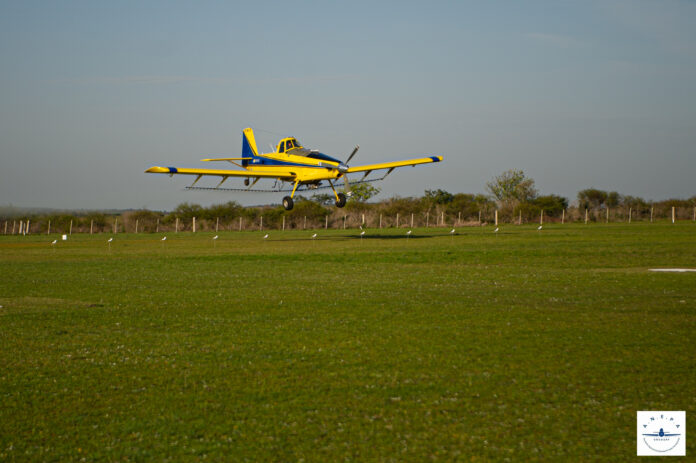Agricultural aviation faces difficult times. As if the usual and now unprecedented economic hurdles weren’t enough, misinformed individuals often elect our highly visible airplanes as the main culprits and use any application drift incident as ammunition to push more and more restrictive regulations against us. That’s the main reason so many ag aviation associations are promoting application quality programs for their members. In addition to the added professionalism and the unwavering desire to make timely professional applications, calibration clinics are a very effective tool against unjust blame.
ANEPA – the Asociación Nacional de Empresas Privadas Aeroagrícolas – the Uruguayan national agricultural aviation association, is no exception. But instead of “reinventing the wheel,” as often is done, ANEPA turned to its sister association in Argentina, FeArCA, the Federación Argentina de Cámaras Agroaéreas and adopted the same continuing improvement program, the Programa de Mejora Continua. Grupo APC, a private company, has been developing this calibration clinic with FeArCA for the last four years, with involvement from INTA, the National Institute for Agricultural and Cattle Technology. (Nacional de Tecnologia Agropecuária) and SENASA, the Service for Food Safety and Quality (Servicio Nacional de Sanidad y Calidad Agroalimentaria).
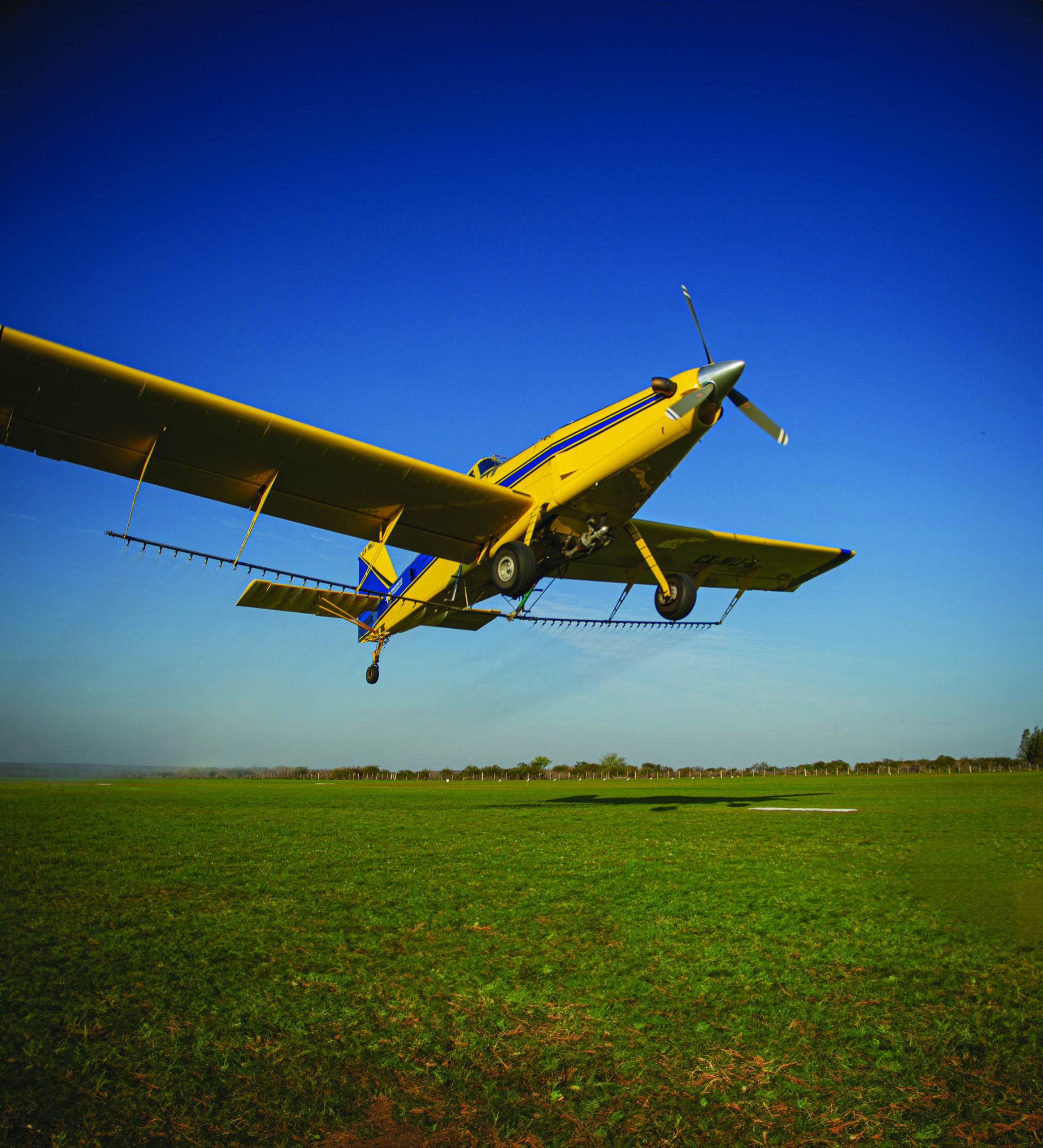
The first Uruguayan ag operator to adopt this Programa de Mejora Continua was Progreso Aeroservicios, owned by Néstor Santos, who also serves on the Executive Board of ANEPA as Secretary. As its name indicates, Progreso Aeroservicios is a very progressive operation with a central base in the city of Progreso, Department (county) of Canelones, not far from the country capital of Montevideo and the ritzy Punta del Este resort. Founded by Néstor in 1983 initially as a banner towing business, Progreso added aerial applications to its services in 1988 with a Cessna 180 and a Pawnee PA-25 and grew up steadily to its present ag fleet of one Air Tractor AT-502, two Air Tractor AT-402Bs and four Cessna C-188 Ag Trucks. Besides aerial applications, Progreso Aeroservicios still provides banner towing services, power line inspections, air taxi, and aerial photography. For those services, Progreso Aeroservicios uses two Cessnas 182s and a Taylorcraft, as well as three Robinson helicopters, two R-44s and one R-22.
With aerial application being its primary business, Progreso Aeroservicios submitted its first evaluation in the Programa de Mejora Continua by Grupo APC in July 2023.
According to Juan Molina, president of Grupo APC, the Programa de Mejora Continua aims to reduce both the water and the carbon footprints of defensive applications, optimizing the use of natural resources like water and increasing the efficiency of pesticides to maximize results and protect the environment.
The Programa de Mejora Continua application begins with a survey made through questionnaires among all the personnel – pilots, loaders and support – to determine how knowledgeable they are concerning pesticide applications.
Next, a meeting is conducted with all the personnel involved to get everybody to commit to the process.
After that, the Grupo APC experts evaluate all the equipment used in aerial applications – airplanes, nozzles, diffusers, pumps, GPS units, flow controllers, etc.
Finally, a calibration clinic is made with the operation’s ag planes. For this evaluation, Grupo APC prefers to use a line of water-sensitive cards placed on unique card holders, which keep the cards facing the wind and at a 45° angle with the ground. These cards are then placed on a table scanner or photographed with a cellphone, and commercial software evaluates the spray deposition in that pass. Grupo APC is developing proprietary software for this, using artificial intelligence.
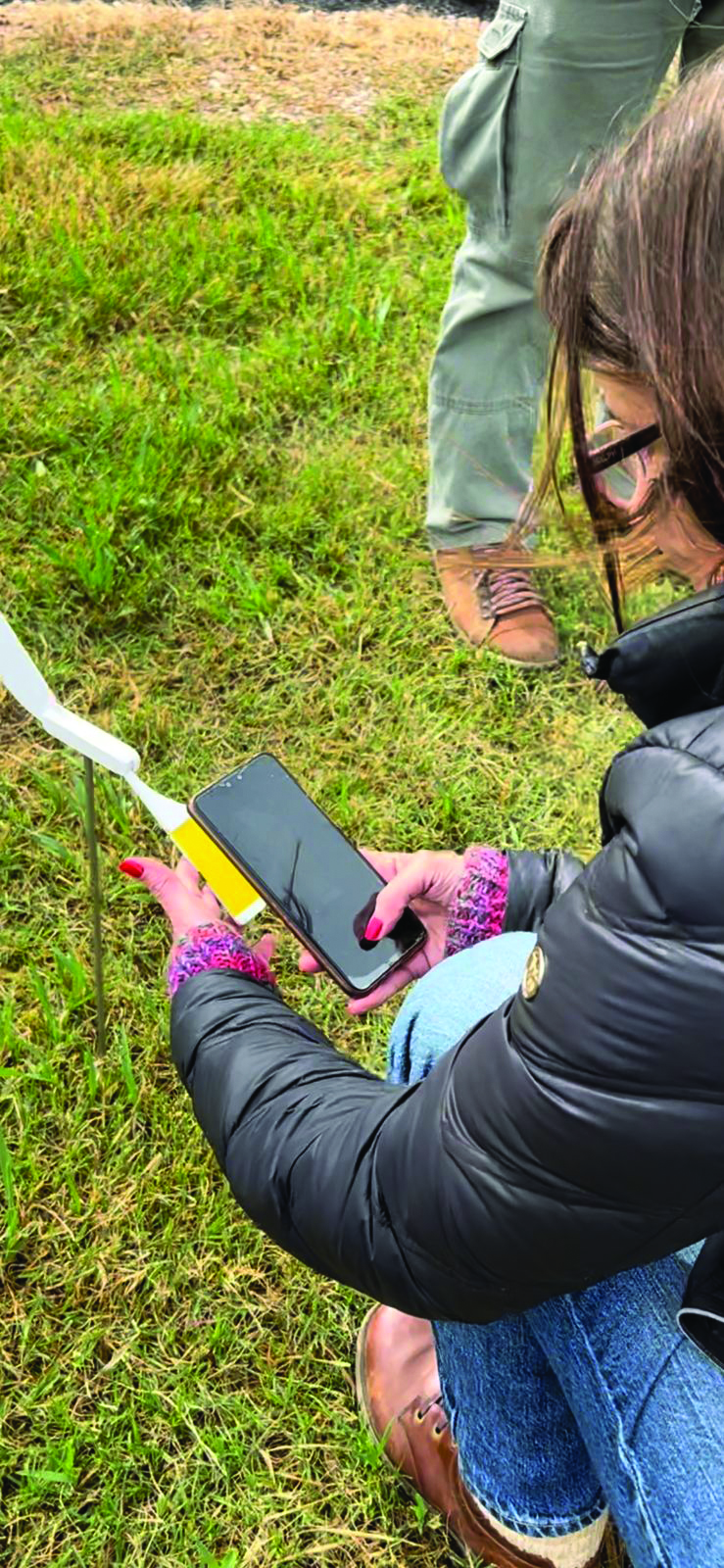
This work leaves the operator with a wealth of information on what the company and its team can do to improve the quality of its applications, and it is to be repeated yearly. Juan Molina says that, under their partnership with ANEPA and FeArCA, this evaluation comes at a reasonable cost to their members.
Juan Molina states, “In just five years, we anticipate a radical change in how we apply pesticides to crops. We must prepare ourselves for this next crop revolution. Technical innovation is transforming our industry, and we must be at the forefront to guarantee efficiency and sustainability in agriculture”. One of the objectives of the Programa de Mejora Continua is to prepare aerial application professionals for this change. While Progreso Aeroservicios was the first ANEPA member to undergo the Programa de Mejora Continua, others followed. Juan and his Grupo APC team have already evaluated many FeArCA members.
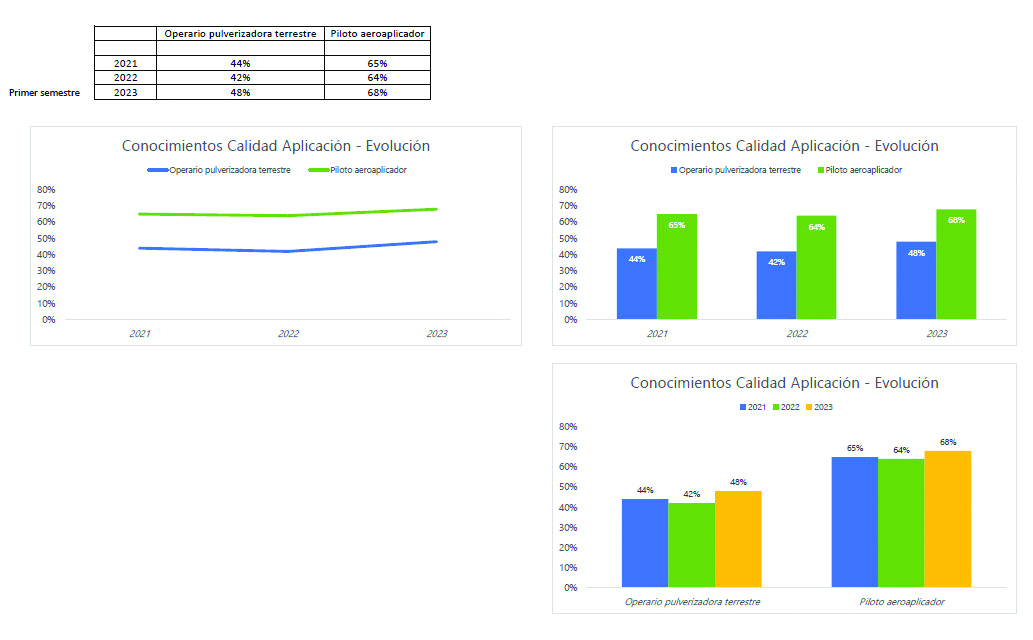
The Programa de Mejora Continua doesn’t apply only to ag aviation; ground applications and drone operations have been submitted to it, which gives Juan a unique perspective on the quality of these three ways to apply defensives to crops. Juan says that aerial applicators have scored as the best quality applications evaluated by his Programa.
We’re living in a time when failure is not an option. To survive, ag aviation must make every endeavor possible to avoid drift incidents and improve the quality and effectiveness of aerial applications. This commendable ANEPA/FeArCA initiative comes none too late. Remember the PAASS slogan, “Upon the performance of each rests the fate of all.”
